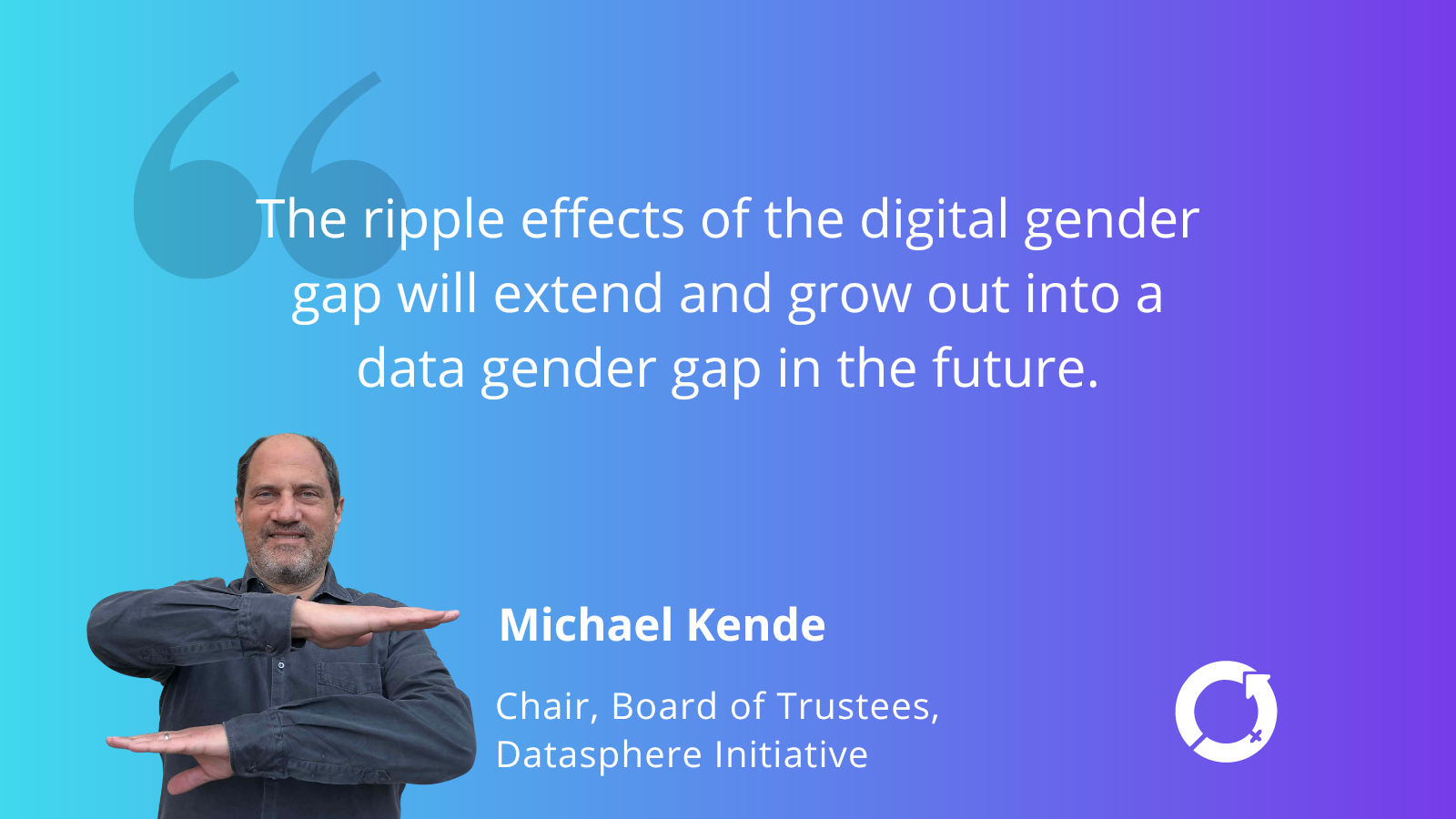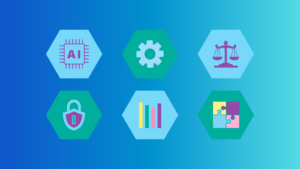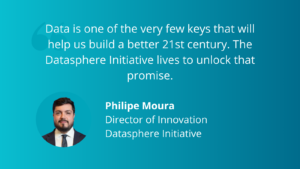On the occasion of International Women’s Day and its 2023 theme #EmbraceEquity, the Datasphere Initiative spoke to a range of policy professionals in the Datasphere Initiative’s global network, to ask them: why equity should be a core goal in policy and technical approaches to responsibly unlocking the value of data?
Michael Kende, Chair, Board of Trustees, Datasphere Initiative shared his perspectives and identified specific actions that can be taken.
Read more about the campaign and other contributions here
While more women are going online, the digital gender gap continues to grow, particularly in developing regions. The lack of access to the Internet and its opportunities is of vital concern, particularly in light of the increasing importance of Internet access as a result of COVID-19 restrictions. However, the impact is not just here and now – the ripple effects of the digital gender gap will extend and grow out into a data gender gap in the future.
Our digital lives generate data, and this data can be used to train artificial intelligence applications. These applications are increasingly being deployed by businesses and governments, in facial recognition, employment, and financial decisions, among others. With less data on women, the systems can lead to biased decision-making, resulting in false identification, discriminatory hiring, and unfair credit scoring.
To guarantee equity, policy and technical approaches to AI development must ensure that the training data reflects the entire population, not the online population. This will help to contain the already high costs of the growing digital gender gap.
Michael Kende is the Chair of the Board of the Datasphere Initiative. He is a Digital Development Specialist at the World Bank Group and a Senior Advisor at Analysys Mason and has advised the ITU, UNCTAD, Broadband Commission, and other organizations on Internet policy issues. His former positions include Chief Economist at the Internet Society, Visiting Lecturer at the Geneva Graduate Institute, partner in Analysys Mason and head of the US office, Assistant Professor of Economics at INSEAD, and Senior Economist at the Federal Communications Commission. He has a Ph.D. in Economics from MIT, and is author of the book “The Flip Side of Free: Understanding the Economics of the Internet”.




